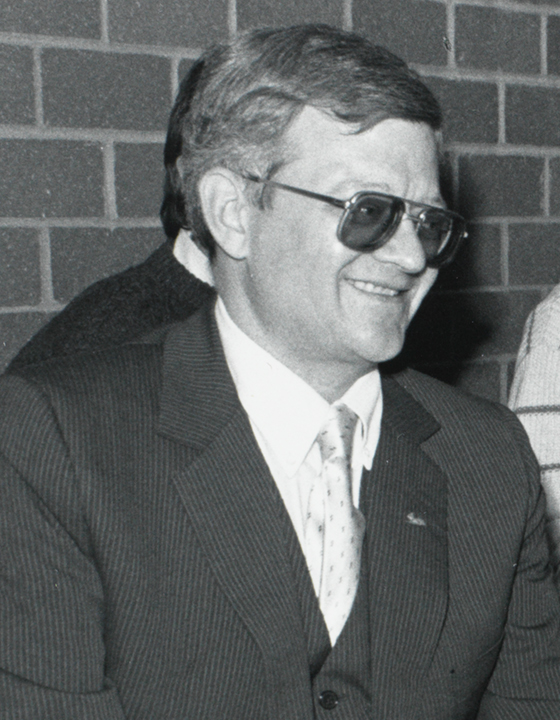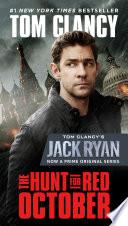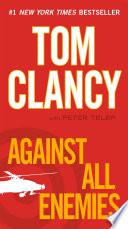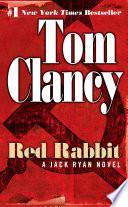Works

Executive Orders
Tom Clancy
Without Remorse
Tom Clancy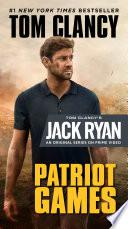
Patriot Games
Tom Clancy
The Cardinal of the Kremlin
Tom Clancy
Clear and Present Danger
Tom Clancy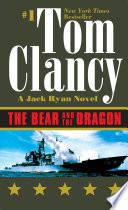
The Bear and the Dragon
Tom Clancy
The Teeth of the Tiger
Tom Clancy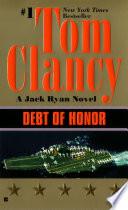
Debt of Honor
Tom ClancyFamous Tom Clancy Quotes
“Courage is being the only only one who knows how terrified you are.”
Source: Red Rabbit
“The point of life was to press on, to do the best you can, to make the world a better place.”
Source: Clear and Present Danger
Tom Clancy Quotes about people
2000s, Kudlow & Cramer interview (2003)
1990s, Schafer interview (1995)
Without Remorse (1993), p. 231
1990s
Tom Clancy Quotes about the world
2000s, CNN interview (2000)
“There's nothing that's ever happened in the world that didn't start in one human mind.”
2000s, In Depth with Tom Clancy (2002)
1990s, Schafer interview (1995)
Context: In case you haven't noticed, we live in a world that is for the first time in all of recorded human history unlikely to have a major war. There used to be this country called the Soviet Union; it's not there anymore. The reason is our technology was better than theirs. Probably what pushed the Russians over the edge was SDI. It was really a combination of SDI and CNN. They realized they couldn't beat us so they decided to change the ball game.
2000s, Larry King Live (2000)
Context: Historically, anything that gets information to people is good for the world. The most important human being who ever lived, if you want to leave out religious figures, would be Johannes Gutenberg... that's when the liberation of human thought happened, because people could read the thoughts of people across the world, and have thoughts of their own, and publish them and spread information around. Anything that gets information to people is good. America has prospered because we're the most information-friendly society in the world.
“Nothing is as real as a dream. The world can change around you, but your dream will not.”
As quoted in Writers (1995) Published by A. Deutsch
1990s
Context: Nothing is as real as a dream. The world can change around you, but your dream will not. Your life may change, but your dream doesn't have to. Responsibilities need not erase it. Duties need not obscure it. Your spouse and children need not get in its way, because the dream is within you. No one can take your dream away.
Tom Clancy: Trending quotes
“The difference between reality and fiction? Fiction has to make sense.”
Attributed to an interview on Larry King Live; also quoted in Quotable Quotes (1997) edited by Deborah Deford
Attributed variant: The difference between fiction and reality is that fiction has to make sense.
Clancy here expresses an idea evoked in similar statements made by others, all derived from the orignial made by Lord Byron:
Lord Byron: Truth is always strange; stranger than fiction.
Mark Twain: Truth is stranger than fiction, but it is because fiction is obliged to stick to possibilities, truth isn't.
G. K. Chesterton: Truth must necessarily be stranger than fiction, for fiction is the creation of the human mind and therefore congenial to it.
Leo Rosten: Truth is stranger than fiction; fiction has to make sense. (attributed)
1990s
Interview with Judy Woodruff https://listenonrepeat.com/watch/?v=kSjrLYT1hr8 (11 September 2001), CNN
2000s
Context: Ending your own life is not something the average person does. Everybody's assuming these are Islamic terrorists. Well, if so they've defiled their own religion. Islam does not permit suicide. It says you go to hell if you do something like this... We saw people in Northern Ireland, Catholics acting like savages and Protestants acting like savages... We have people who call themselves Muslims acting like savages. It's not because of their religion, it's because they're fools.
1990s, Schafer interview (1995)
Context: America is the most inventive country in the world. Why? Because everybody has access to information. In the Soviet Union it was illegal to take a photograph of a train station. Look what happened to them. They tried to classify everything. The more information available to the average person, the greater the synergy that develops from it.
Tom Clancy Quotes
1990s, CNN interview (1999)
Context: My vision for this book and the others in the series is to let people know what kind of commanders we have. You don't pick generals off park benches. … They are experts at what they do and lot of thinking goes into it. And I want to get across to people the intellectual dimension of command, to let people know that it's hard to be a general. And the people we have with general stars on their shoulders are pretty smart and pretty good guys.
1990s, Schafer interview (1995)
Context: Fighting wars is not so much about killing people as it is about finding things out. The more you know, the more likely you are to win a battle. Take the AEGIS system in the navy. It's a radar computer system for air-battle management. What it does is give the commander an extra 15 minutes to decide what he's going to do to fight a battle, and those 15 minutes are decisively important.
“I wanted a different way in which to tell my stories.”
2000s, GameSpy interview
Context: I wanted a different way in which to tell my stories. Coming up with concepts for computer games gives me another avenue of creative expression. It's not just me telling the story, it's me designing the idea for a story and letting the players write their own ending.
On the 1991 Gulf War
1990s, CNN interview (1999)
Context: I think it's going to be remembered as the last major war on planet Earth, if we're lucky, if we maintain our foreign policy properly. … It will be remembered as the last time major countries had to put people in the field and put them in harm's way. It may be the last of all human nature wars, which is a nice way to remember any kind of a war, as the last one.
1990s, Schafer interview (1995)
Context: I was one of the first generations to watch television. That's technology. TV is like any other kind of tool. TV exposes people to news, to information, to knowledge, to entertainment. How is it bad? Computers are going to be even bigger. TVs are one-way. You sit there and you watch it. Computers, you interact with.
emanating from all those old graves. The people who'd drafted the Constitution had sat in a room dominated by George Washington himself, and whatever honor they'd lacked he'd probably provided from his own abundant supply, just by sitting there and looking at them. The current Congress had no such mentor/living god to take George's place, and more was the pity, Ryan thought.
The Bear and the Dragon (2000), Ch. 12 : Conflicts of the Pocket
2000s
“Life is about learning; when you stop learning, you die.”
As quoted in The Appraiser's Handbook : A Guide for Doctors (2007) by Nick Lyons, Susanne Caesar, Abayomi McEwen, p. 11.
“It was one thing to use computers as a tool, quite another to let them do your thinking for you.”
Source: The Hunt for Red October
Source: The Hunt for Red October
Source: The Hunt for Red October
“There are only two ways we can be beaten: we die or we give up. And we're not giving up.”
Source: Against All Enemies
“I write strictly for fun… as long as it stays fun I'll continue to do it.”
Interview with Don Swaim (1986)
1980s
1990s, Schafer interview (1995)
“I'm a spy… I worked for the CIA 15 years. The cover was I worked for the insurance business.”
Said Jokingly.
2000s, Larry King Live (2000)
“I don't discuss works in progress…”
Attributed variant: I don't discuss future works or works in progress.
2000s, GameSpy interview
With Peter Telep, Against All Enemies (2011), chapter 34
2010s
1990s, Schafer interview (1995)
2000s, CNN interview (2000)
Executive Orders (1996), p. 613
1990s
1990s, Schafer interview (1995)
1990s, Schafer interview (1995)
1990s, Schafer interview (1995)
As quoted in Escape The Pace: 100 Fun And Easy Ways To Slow Down And Enjoy Your Life (2002) by Lisa Rickwood; this quote appears at least as early as 1996 online
1990s
2000s, CNN interview (2000)
“Victory comes only to those prepared to make it, and take it.”
Patriot Games (1987)
1980s
“I’ve made up stuff that’s turned out to be real, that’s the spooky part.”
The New York Times (27 July 1986)
1980s
2000s, Larry King Live (2000)
“That's the ultimate pornography… There's nothing more pornographic than glorifying war.”
1990s, CNN interview (1999)
Variant: There's nothing more pornographic than glorifying war.
Personal correspondence, 5 February 1983. Published in "Becoming Tom Clancy: Letters from Tom -- Part 1," Pied Type (Oct 2, 2013) http://piedtype.com/2013/10/02/tom-clancy-boy-writer-part-1/
1980s
2000s, Larry King Live (2000)
Interview with Don Swaim (1986)
1980s
2000s, Larry King Live (2000)
2000s, In Depth with Tom Clancy (2002)
